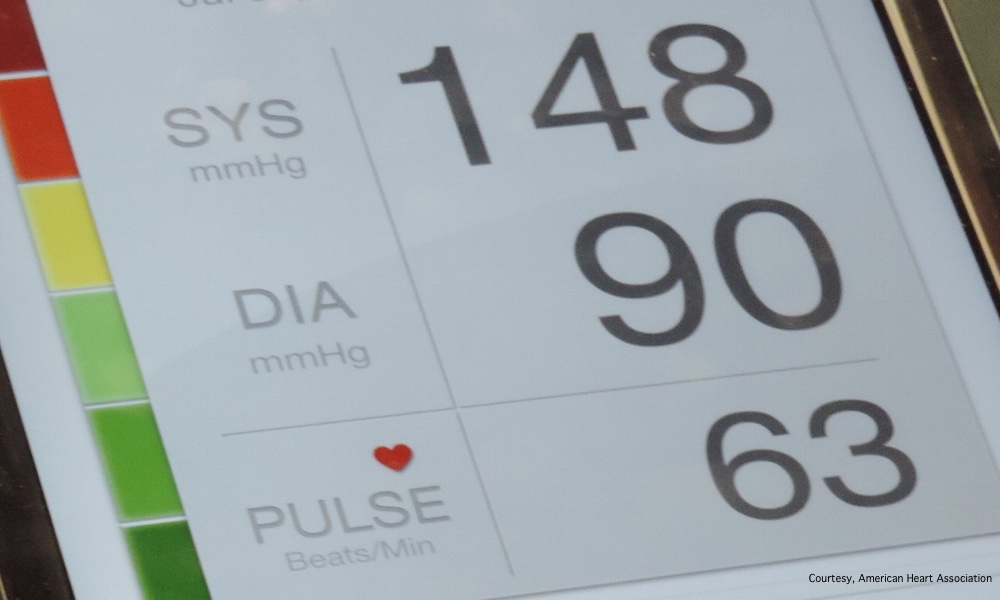Uncontrolled hypertension, or high blood pressure, can lead to cardiovascular issues, such as a heart attack and stroke, and death from cardiovascular disease. It also raises the risk of chronic kidney disease, diabetes and cognitive decline.
Researchers at the Centers for Disease Control and Prevention recently analyzed data from more than 3,100 U.S. adults in the National Health and Nutrition Examination Survey (NHANES) with uncontrolled hypertension, looking at the outcomes of the hypertension control cascade, a framework that includes hypertension awareness, treatment and control. Uncontrolled hypertension was defined as systolic blood pressure of 130 mm Hg or greater or diastolic blood pressure of 80 mm Hg or greater, regardless of medication use.
The researchers estimate, based on the data, that more than 100 million people in the U.S. have uncontrolled hypertension, and more than half are unaware of it. LaTonia Richardson, corresponding author of the study, told TheDoctor in an email that this means roughly 57.8 million adults are unaware that they have hypertension.
Of the 35 million adults whose blood pressure met criteria for antihypertensive medication, nearly 25 million took medication, but still had hypertension that remained uncontrolled. “Our results suggest a prescription alone for antihypertensive medications does not guarantee control at the individual and population levels,” Richardson said.One reason so few people pay attention to their blood pressure is the fact that high blood pressure has no clear symptoms — until it begins to take a toll on their heart or kidneys.
These findings have potentially serious implications for the overall health of the U.S. population, the researchers said.
Unfortunately, the findings are consistent with other analyses of the NHANES data, Daniel Lackland, the author of a related editorial, told TheDoctor. “It is not a surprise, but maybe a disappointment in the number of people still unaware of their blood pressure,” said Lackland.
One big reason for this lack of awareness is the fact that high blood pressure has no clear symptoms, until it begins to take a toll on a person's heart or kidneys.
Young adults often think that blood pressure monitoring is something for older persons, but the opposite is actually true — it is far better to check it and catch it early before it begins to damage the body.
Young adults go undiagnosed because they assume their blood pressure is normal. “This is especially true of adults between the ages of 18 and 44, given their more limited engagement with the healthcare system and their likelihood of having less frequent medical appointments,” said Richardson, a statistician and data scientist in the Division for Heart Diseases and Stroke Prevention at the Centers for Disease Control and Prevention.
People should know what their blood pressure is, regardless of their age or health status. The best time to start monitoring blood pressure and bringing it under control is when you are young, before you develop any of the comorbid conditions associated with hypertension. As Lackland put it, “You know your weight. You know how tall you are. You should also know your blood pressure.”
Work still needs to be done to raise awareness of the importance of blood pressure and blood pressure control. Most households have a scale, said Lackland, a professor of epidemiology at the Medical University of South Carolina. Homes should also have a blood pressure monitor in the house, so everyone can take their blood pressure regularly.
Future studies can look at the effects of interventions among certain populations with uncontrolled hypertension, such as overweight adults ages 18 to 44, women of reproductive age or people who rarely visit healthcare providers.
The study and related editorial are published in JAMA Network Open.





